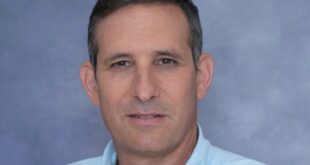By Meidad Pariente

In the twelfth episode (1 year anniversary) of Space Café Israel, Meidad Pariente is in conversation with Ayelet Galili, the CFO at Tehiru Space.
Can you share something personal that isn’t written in your LinkedIn profile?
I’m very versatile, and I have a wide range of interests. I have a degree in interior design, and I worked in it for a little while. I have completed a radio broadcaster course in Radio Tel Avi (102 FM). After that, I started dancing. I was a ballroom dancer instructor for newcomers. My favorite dance is Roomba. I have practiced Pilates since I was 18. I like running, and I like to travel around the world to different places. And I finished a carpentry course, and it goes on and on. I have so many dreams to accomplish. I believe each person represents a unique universe, and I’m so excited to meet new people and learn about their perspectives, opinions, and way of life. That’s my favorite thing. Since I started dating.
So you were an interior designer, a ballroom dancer, and a CPA auditor. How did you find yourself as the CFO of a new-space launching company?
Well, it was a journey full of serendipity. And it’s an exciting journey. The vision for a future of space exploration. captivated me from the first moment I learned about it. It combines technological investment and sustainable practices, and it touches the right buttons in my personality. I was drawn to the incredible potential that Tehiru Space has to offer. I can say that. After achieving significant milestones in the Youth Village, I started asking myself, what’s next? And as I said, at the time, I started pursuing my master’s degree in public policy. I attended a lecture about Beresheet’s mission to the moon, how it all started, the changes, surprises, and budget problems, and it made me realize that the main thing impacting innovation is what space exploration has to bring to humanity. As a person that pursues social impact, I pursued the incorporation of social impact in my professional life. I really wanted to find myself doing social impact and doing good in the space industry, which is an industry that is always innovative and always has something new to bring to the table. So I started attending conferences and started conducting research. And that’s how I got to discover and meet Aaron Pratt, the CEO of Tehiru Space and took it upon myself to convince him that his startup was missing someone like me, someone that has a strategic financial vision, an expert that could establish infrastructures, develop financial business plans and bridge the gap between technological and operational trends and translate it to financial considerations. I really appreciate the opportunity Aaron was smart enough and kind enough to offer. I got the role of the CFO of Tehiru Space. It’s been six months, but it looks like a long journey. And I get the opportunity to work with an amazing team. I’m very, very grateful for this opportunity and for this ride and journey, and I’m looking forward to the future.
I think that it’s essential to recognize that historical gender biases and system variables can detain equal opportunities. So to foster gender equality in organizations and society, at all levels, from government to local authorities, to companies, in every level, we need to implement corrective measures. I think that policies that encourage gender balance representations in leadership roles are really mandatory.
The Israeli Association for gender equality selected you as one of its 51 influencers for 2022 as a social activist for gender equality. Get ready for this question. Can we promote women to senior positions in points of influence in a natural way? Or do we need corrective discrimination?
That’s a hard subject. We had a discussion about it in our women’s community group last week. So, first of all, the Israel Association recognition is truly an honor. It’s run by Hana Rado, which is such an impact entrepreneur. But I want to talk about something else. I think that it’s essential to recognize that historical gender biases and system variables can detain equal opportunities. So to foster gender equality in organizations and society, at all levels, from government to local authorities, to companies, in every level, where they chose, they need to implement corrective measures. I think that policies that encourage gender balance representations in leadership roles are really mandatory. And it has to come side by side with mentorship programs. So to your question. Absolutely, yes. I mean, not all women need this encouragement, but not all women feel comfortable, even participating in this kind of podcast (Space Cafe Israel – m,p). We need more role models, so women will have models to enable us to bridge the gap that we have. I think, once the entire society of both men and women will understand that it will contribute to the welfare of both sides, then it will be easier for women to be accepted and be promoted to leadership roles. Because eventually, this diversity brings more to the table than we have today. And I don’t see why it couldn’t happen naturally, but it will take longer, and we have to push it in, give it an advantage.
Shoutout time: who is your role model?
But I want to talk about Dr. Estee Rieder-Indursky. She is a distinguished writer. I met her in my second-degree course called “Being an ultra-orthodox Person in Israel”. She had a lecture about orthodox women. At first, I have to say that I didn’t like her lecture. It was very harsh, and I resisted it. But she said something that captivated me. She said, “It’s okay. if you know that you’re resisting now. Take the night, sleep on it, and think about it tomorrow again, and you’ll see that you will find at least one common thing among”. And she was so right. She’s a feminist. She’s an activist, She’s devoted to elevating the status of women and fostering dialogue across Israeli society. She has a doctorate from Tel Aviv University. She teaches in the Department of Communication and the International Program at Tel Aviv University and in the Department of Political Science at Emek Yizrael College, and she’s advocated cooperation and social responsibility. She just makes you think differently about the ultra-orthodox society and how this conflict that we all share, and no one can come to a solution. Because eventually, it’s a society that everyone can say, both the society itself and all of us in the nonreligious society, that this conflict is getting bigger and bigger. And we have to face it, we can’t just let it run beside us. She brings a new perspective to this conflict. And it’s very, very interesting. I recommend listening to her and taking her advice.To listen. To sleep on it, and then to get back to it again.
What do you think the Israeli space industry will look like in 2050?
Now, that’s a very sensitive question. Considering all the conflict we currently have in Israel. I can say that we have a social crisis right now, in Israel. It’s real and it’s here. The ones who say that it’s just overreacting are totally missing the point. I feel that we all have to be a little bit softer. Remember, serendipity again. Yesterday was ‘Tisha Be-Av’. It’s a memorial Day for the destruction of the Holy Temple (Mount Temple – m.p) in Israel. And it’s a time that all Jews are required to soften their hearts and remember that we are one nation, and we are literally all brothers. And it’s like a cliche, but it’s really not. And underneath all these conflicts, and disagreements, we have strong roots. And we have to remember that there’s nowhere else for us to be, this is our country, and we have to resolve our conflicts. And keeping extreme opinions and “being right”, will not lead us anywhere. So both sides have to compromise. The actual solution, even if it means you give up some of your values along the way, you have to make sure that this country has a future, and it’s up to us. not up to our leaders. I have a strong opinion about our leaders, and I think everyone currently agrees that we have bad leadership. I’m not talking just about one side, I’m talking about two sides. We have bad leadership and we have to take it upon ourselves. To make sure that this conflict is resolved. And about the space industry. I really hope Israel will be smart enough to catch up to the Space Race and be able to be wise enough to make sure space is not only relevant in defense and military fields only but both in civilian and commercial fields like Tehiru Space offers. And it’s really up to our decision-makers. They can start by reducing the bureaucracy we currently have. I believe that Israel can be a big part of the space industry, but it has to change its mindset and put it on its agenda to be a part of the commercial space industry and not just of the defense and military.
Ayelet Galili has over 20 years of work experience, starting as a Technical Coordinator at Galili LTD, an Auditor at KPMG, and Corporate Finance Controller at Polymer Logistics. In 2014, Ayelet became the CFO at Sabar Health before becoming the CFO and CHRO at Hadassah Neurim Youth Village in 2020. Today she is the CFO at Tehiru Space.
Ayelet has a BA in Business Administration, Management, and Finance, CPA certification in Audit and Accounting, and a degree in Interior Design. Currently, She pursues an MA in Public Policy Leaders at Tel Aviv University.
 SpaceWatch.Global An independent perspective on space
SpaceWatch.Global An independent perspective on space




